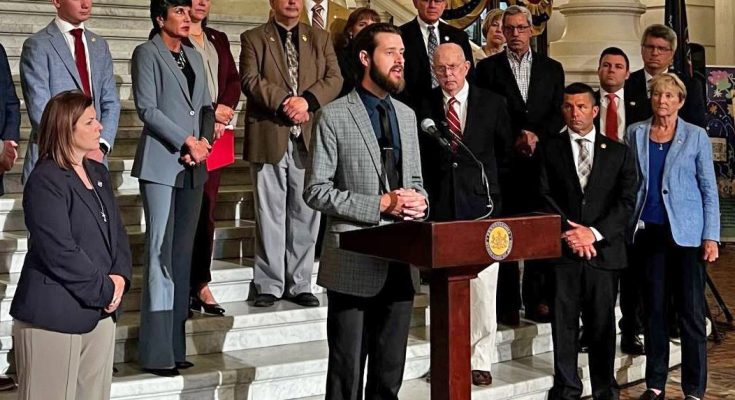According to data from the Kaiser Family Foundation in 2022, the average annual premium for employers with 50 or fewer workers stands at $8,012 for single worker coverage, with the family average reaching over $22,000. Alarming findings from a Paragon Health Institute brief indicate that due to these rising premiums, fewer small businesses are offering health insurance to their employees. The decline is evident as, in 2002, 44.5 percent of small businesses provided health insurance, while this figure
plummeted to 31.9 percent by 2021, marking a significant 28-percent decrease.
The mounting costs of health insurance are placing burdens on small businesses competing for talent, with 45 percent of them reporting their inability to increase salaries if they continue to offer health insurance benefits, while 37 percent are hindered from expanding their workforce. The Manufacturer & Business Association (MBA) has been actively advocating for affordable health insurance coverage for employers. State Representative Valerie Gaydos, alongside 25 co-sponsors, has reintroduced the bipartisan House Bill 555, which aims to establish Association Health Plans (AHPs). The MBA firmly supports this legislation and participated at a press conference held on June 5 within the Capitol Building’s rotunda. HB 555 would allow the MBA to offer reduced cost health insurance benefits to its members.
The core issue lies in the disparity between big businesses, which have the advantage of purchasing health insurance on the large group market, and small businesses, who must comply with more stringent government regulations, leading to increased costs and less negotiation power.
How Can AHPs Address These Challenges? According to the nonpartisan Congressional Budget Office, once implemented, approximately 20 percent of individuals enrolled in AHPs will gain health insurance for the first time. The most significant benefit lies in the fact that AHP premiums are estimated to be around 30 percent lower than what employers and their employees currently pay under the “small group market.”
AHPs are not a novel concept, as 33 states already permit their existence in some form. Moreover, similar legislation has consistently enjoyed bipartisan support. For example, in Connecticut, the House Insurance Committee, with a majority vote from Democrats, recently approved legislation allowing non-industry- based groups to establish fully insured plans for purchasing health insurance on the large group market, mirroring the objectives of HB 555.
Key points to consider from the legislation:
• The plans will include essential health benefits currently not mandated in the large group market.
• AHPs will provide comprehensive coverage and protect individuals with pre-existing conditions.
• Existing health coverage will not be impacted by AHP implementation.
• Hundreds of thousands of people will receive health insurance for the first time through AHPs.
• These reforms can be achieved without requiring billions of dollars in additional spending through expanded government subsidies.
Let’s be real. These are the businesses that make up the very fabric of our communities. They are the ones that sponsor Little League teams and know their employees by name. However, their ability to maintain health insurance coverage for employees is threatened. An MBA member sent me this email: “Due to my company’s size, my insurer will not renew our coverage. We face cost increases of 22 percent to 98 percent on the high side. The rates, coverage and deductibles are inferior to any current coverage. We will be forced to increase employee contributions by 35 percent.”
It is crucial to break down the barriers that prevent small businesses from coming together to sponsor a single large group health plan, allowing them to compete on an equal footing with larger counterparts. You can help by telling your Pennsylvania House members to support HB 555. The new governor has campaigned that he will open Pennsylvania for business. We agree, let’s start here.

Jezree Friend is the assistant vice president of External Relations at the Manufacturer & Business Association. Contact him at 814/833- 3200, 800/815-2660 or jfriend@mbausa.org.












